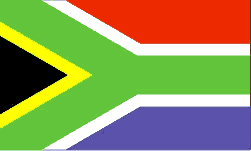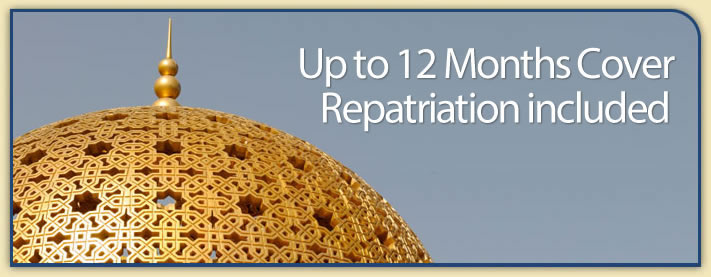Country Guide • South Africa

South Africa is located at the southern end of the African Continent. It is bound by the Namibia to the north west, Botswana to the north, Zimbabwe, Mozambique and Swaziland to the north east, the Indian Ocean to the east and south east and the Atlantic Ocean to the south west and west.
| Official Name | Republic of South Africa |
|---|---|
| Area | 1,221,042km² (471,447mile²) |
| Population | 42,768,678 |
| Continent | Africa |
| Population per mile² | 91 |
| Capital City | Pretoria (administrative); Bloemfontein (judicial) and Cape Town (legislative) |
| Religions | Christian 68% (includes most whites and Coloureds, about 60% of blacks and about 40% of Indians), Muslim 2%, Hindu 1.5% (60% of Indians), indigenous beliefs and animist 28.5%. |
| Language | 11 official languages, including Afrikaans, English, Ndebele, Pedi, Sotho, Swazi, Tsonga, Tswana, Venda, Xhosa, Zulu |
| Government | Republic and independent member of the British Commonwealth |
| Currency | Rand |
| GDP | $432 billion |
| GDP per Head | $10,000 |
| Natural Resources | Gold, chromium, antimony, coal, iron ore, manganese, nickel, phosphates, tin, uranium, gem diamonds, platinum, copper, vanadium, salt, natural gas |
| Land Use | Arable Land 12% |
| Agriculture | Corn, wheat, sugarcane, fruits, vegetables; beef, poultry, mutton, wool, dairy products |
| Industry | Mining (world's largest producer of platinum, gold, chromium), automobile assembly, metalworking, machinery, textile, iron and steel, chemicals, fertilizer, foodstuffs |
| Tourism | South Africa has beautiful rural areas such as the Cape Winelands, the towering dunes of the Wild Coast, and magnificent game parks including those of Kruger and Zululand. Thre are the deserts of Kalahari and Karoo which are barren for much of the year but in spring become a carpet of flowers. South Africa has some impressive cities including Johannesburg, Pretoria, Durban and Cape Town, or on asmaller scale historic towns like Stellenbosch or Pietermaritzburg. Opportunities are endless but there is a high level of crime but most occurs in the townships and isolated areas away from tourist destinations |
| Natural Hazards | Prolonged droughts |
| Health Risks | HIV/AIDS, Malaria is prevalent in parts of Mpumalanga, Limpopo province and KwaZulu Natal (particularly the Wetlands area around St Lucia). Before travelling to these areas, including Kruger Park, and periodic outbreaks of cholera in the poor communities of rural South Africa |
| Climate | South Africa’s climate is generally sunny and pleasant. Winters are usually mild, although snow falls on the mountain ranges of the Cape and Natal and occasionally in lower-lying areas, when a brief cold spell can be expected throughout the country. Average annual rainfall varies from 16 inches in the east to less than 2 inches in the north west coastal regions. Average temperature ranges in Cape Town are from 9 - 17°C in July to 16- 27°C in February |
| Time | GMT/UTC+2 hours |
| National Days | March 21 Human Rights Day, April 21 Family Day, April 27 Freedom Day, May 1 Workers’ Day, June 16 Youth Day, August 9 National Women’s Day, September 24 Heritage Day, December 16 Day of Reconciliation |
| Visas | British nationals visiting South Africa on holiday for less than 3 months do not require visas. Most other Commonwealth and Western European countries, as well as Japan and the USA do not require visas and will be issued with an entry permit on arrival. If you aren't entitled to an entry permit, you'll need to get a visa (also free) before you arrive |
| British Embassy | Embassy Details |
Information Only
The content above is for information purposes only and we have tried to ensure that the information is as accurate as possible. We cannot accept any responsibility for any inconvenience, loss or injury as a result of the information above. You should always check and verify any critical information like visas, health and safety and customs with the relevant authorities before you travel since information can change at any time.



